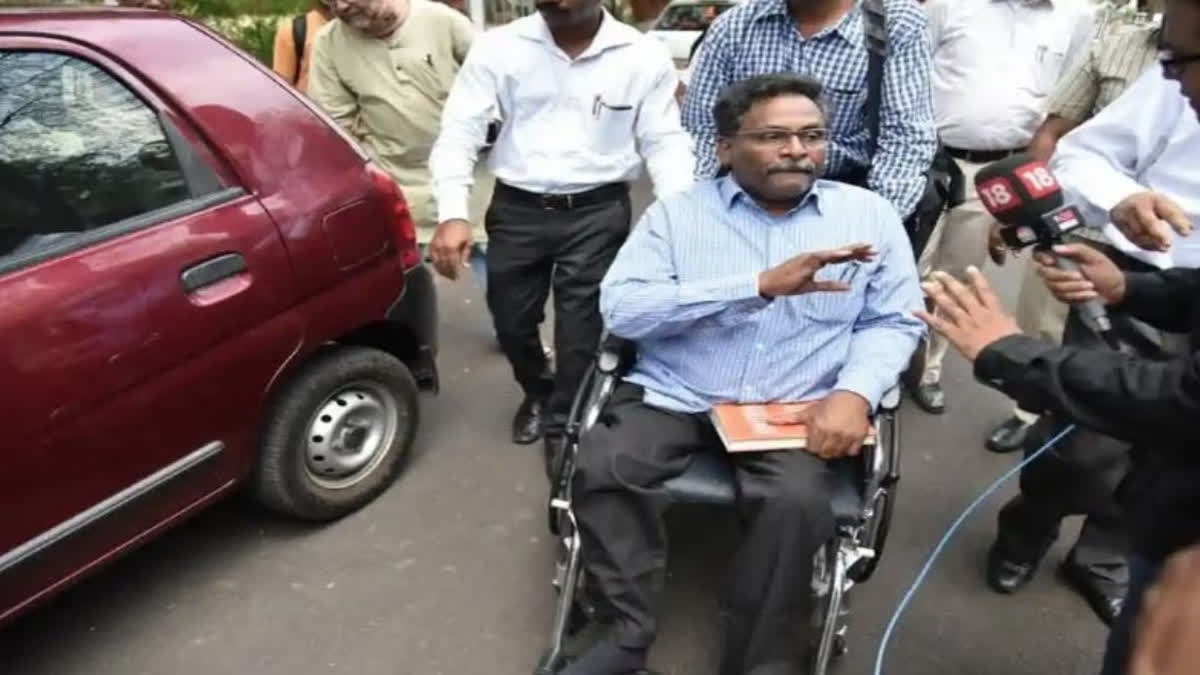Nagpur:Former Delhi University professor G N Saibaba, who was released from the Nagpur Central Jail on Thursday after his acquittal in an alleged Maoist links case, said it's a wonder that he could come out alive despite suffering the brutal jail life. Saibaba (54) said he was targeted for working for the rights of tribals in central and eastern parts of the country and called his arrest an afterthought.
The Bombay High Court on Tuesday set aside the life sentence of Saibaba, noting that the prosecution had failed to prove the charges beyond a reasonable doubt. There was every chance that I would not have come out alive, Saibaba told media persons. He had earlier refused to talk to the press saying, My health is very bad. I can't talk. I will have to first take medical treatment, and then only I will be able to speak.
The former DU professor, who depends on a wheelchair for mobility, said he changed his mind after requests from lawyers and reporters. Saibaba said he would be visiting doctors soon. Recalling his incarceration at the Nagpur jail, which he described as very rigorous and brutal, Saibaba said it barely provided any accessibility. I couldn't pull up, I could not move out of my wheelchair. I could not go to the toilet (on my own), I could not take a bath. It's a wonder that I came out of the prison alive today, he said, stressing that there was every chance that he could not have made it.
The former professor also called the case against him a fabricated one. Today, you can see, not once but twice, that the higher judiciary confirmed that this case is without facts, evidence and any legally viable matter. Why has it drawn so long? Ten years of my life and my co-accused's life. Who will bring them back?
A family member was waiting for Saibaba outside the jail when he came out in the morning. Saibaba said he was targeted for working for the rights of Adivasis in the central and eastern parts of the country. Before his arrest, the former English professor said, he had been asked by eminent personalities like Justice Sachar and ex-IAS officer B D Sharma to coordinate with human rights outfits, civil society groups and Dalit organisations to bring unity among democratic voices as well as raise the issues of tribals. He said tribals suffered a lot and their land was grabbed during Salwa Judum', a state-sponsored people's resistance movement against Naxalites, in Chhattisgarh.
He had also been asked by international rights organisations and certain wings of the United Nations to document the sufferings of tribals in central and eastern India, said the former DU professor. However, the then government did not like my work, he claimed. I was implicated as an afterthought in a case that was filed ten months ago at that time, he claimed. Saibaba said he entered the prison as a healthy man except for polio and his dependence on a wheelchair but now has a host of health issues, including heart, muscle and liver problems.
